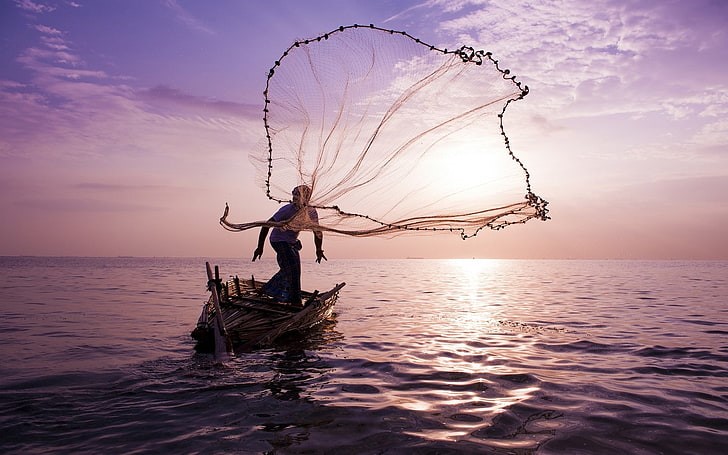Many people have heard the old adage, “If I give you a fish, you eat for a day. If I teach you to fish, you’ll eat for a lifetime.” In this article, we’d like to propose that traditional learning and development paradigms focus far too often on “giving participants the fish,” with poor results in both the short and long terms.
Think about typical training design. We start with “behavioral objectives.” “By the end of this Workshop the participant will: ….” Said differently, “Here are the fish you should expect to have in your creel at the end of this fishing trip.”
There’s a problem here, though. The fish spoil quickly! Especially in today’s internet-enabled, “real-time” world, the half-life of information continues to shrink. Working with obsolete data (fish) can cause similar problems to eating spoiled fish. Indigestion at best – life/business threatening food poisoning at worst.
Recognizing that the new game isn’t catching a particular fish is a good start. Recognizing that the new learning skill is “learning to fish” is critical. This is obviously not a new concept. “Learn to swim in the white water” was made popular by Charles Handy in the mid 1990s. The issue we have is that we try to “teach people to fish” using the same tools we use to give them a fish!
The “Complexity Space” is a paradigm that integrates complexity theory, adult learning theory, brain science, and contemporary change management to offer a different way to “learn to fish.” It focuses on patterns. The information processing patterns of the fisherman. The eating patterns of the fish. The patterns of the weather, water, and fauna. The patterns of information sharing that occur between fishermen.
The Complexity Space is based on the premise that complex systems – human systems – are non-linear; that is, they don’t operate in strict “cause and effect,” “do this and that is guaranteed to happen” ways. Rather they operate over time in larger patterns, patterns that can be identified, analyzed, and influenced – though not necessarily with the results we intend.
Recognizing how the fisherman talks to him/herself upon first seeing the water matters.
Being clear about what information is available – now – today, this minute, about the species of fish being sought matters.
Accessing past experience regarding “When the weather was like this, that happened, matters.
Change one aspect of an interconnected, complex system, and the rest of it will most likely change in some way as well. Becoming a better learner, through greater recognition of learning patterns and knowledge of how to influence them, may well be the survival skill of the 21st century.
Learn more about the Complexity Space at www.complexityspace.com.

